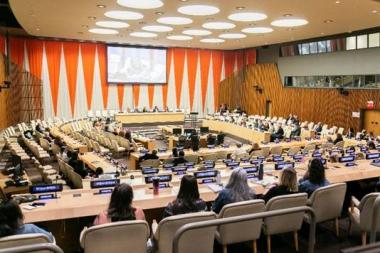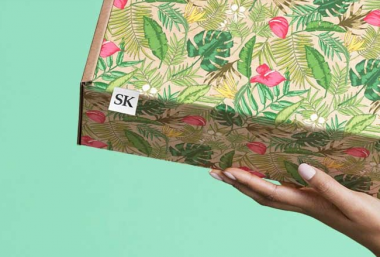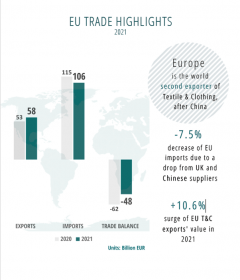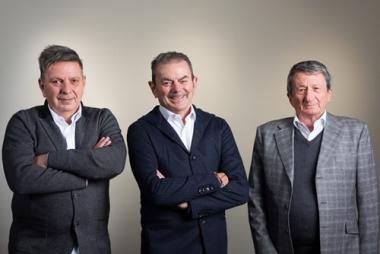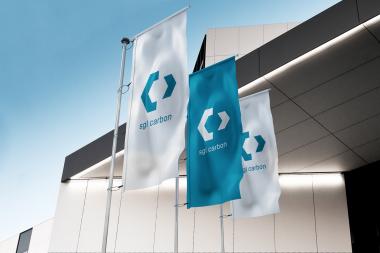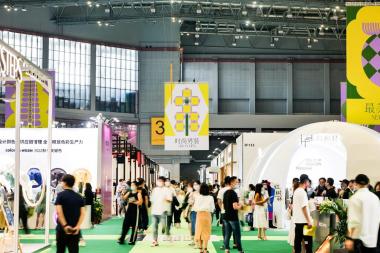BTE kommentiert seine Pressemeldung zum Sommer-Schluss-Verkauf
Der BTE hat am 18. Juli über eine Pressemeldung an die Publikums-Medien einen Sommer-Schluss-Verkauf ab 25. Juli angekündigt. Üblicherweise startet im Mode- und Schuhfachhandel und auch in etlichen anderen Branchen am letzten Juli-Montag der inoffizielle Sommer-Schluss-Verkauf. Er läutet dann - zum Teil als „Final Sale“ - den End- und Höhepunkt der Reduzierungsphase ein.
In diesem Sommer ist die Ausgangssituation in der Branche jedoch sehr unterschiedlich. Vor allem beratungsorientierte Fachgeschäfte haben ihre Ware aus der Frühjahr/Sommer-Saison trotz der zuletzt weiter rückläufigen Konsumstimmung oft gut abverkaufen können. Da es zudem noch einige Lieferausfälle gab, sind die Läger mit aktueller Ware dort weitgehend geleert. Zudem dürfte in mittelständischen Mode- und Schuhhäusern eher wenig modische Altware aus früheren Saisons lagern, da diese mit Hilfe der Überbrückungshilfe III vielfach an Postenaufkäufer oder Spendenorganisationen abgegeben wurde.
Größere Unternehmen hatten diese Möglichkeit aufgrund der Deckelung der Überbrückungshilfe nicht oder nur in deutlich geringerem Ausmaß, in einzelnen Fällen waren staatliche Hilfen wegen vorheriger Insolvenzen nicht möglich. Speziell in preisorientierteren Formaten ist zudem anzunehmen, dass deren hauptsächliche Kundenklientel aktuell besonders stark unter den aktuellen Preissteigerungen leidet und sich daher zuletzt bei nicht notwendigen Modekäufen zurückhielt. Der Anteil von Altware dürfte in diesen Unternehmen daher höher liegen als in kleinen und mittleren Fachgeschäften.
Dies spiegelt sich auch in der Preisfront wider. Sale-Ankündigungen fanden sich in den letzten Wochen vor allem in den Schaufenstern der Groß-Filialisten, wo bereits Rabatte von 50 Prozent angepriesen wurden. Etliche mittelständische Händler hielten sich dagegen noch weitgehend zurück und werden nach Einschätzung des BTE auch weiterhin keine oder kaum Preisaktionen starten.
Das bedeutet: Das Interesse des Mode- und Schuhhandels am Bekanntmachen des aktuellen Schlussverkaufs ist sehr unterschiedlich. Daher hat der BTE aufgrund zunehmender Anfrage der Medien in der Pressemeldung einen Sommer-Schluss-Verkauf mit sehr unterschiedlicher Intensität angekündigt. Tenor der Meldung: Obwohl die Auswahl und ggf. auch die Rabatte von Geschäft zu Geschäft variieren und sich nicht alle Unternehmen gleichermaßen am Schlussverkauf beteiligen, lohnt sich der Besuch der Geschäfte. Denn wenn fast alles um einen herum teurer wird, freuen sich die Kunden umso mehr, wenn sie einmal preisgünstiger an attraktive Mode, Schuhe, Lederwaren oder Haustextilien kommen.
Hinweis: Die Pressemeldung wurde bereits breit in den Medien veröffentlicht und ist unter www.bte.de (Rubrik: News) einzusehen. Der BTE geht davon aus, dass die Berichte über den Schlussverkauf die Frequenzen in den Einkaufslagen erhöhen und davon auch jene Mode- und Schuhgeschäfte profitieren können, die sich nicht am Schlussverkauf beteiligen.
Schlussverkauf, Sale
BTE Handelsverband Textil Schuhe Lederwaren






















